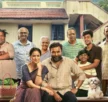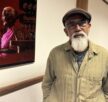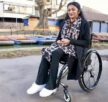

Ashanti OMkar on breaking free from domestic violence
- 24th November 2012
- POST IN :LIFESTYLE
November 25th has been marked as the International Day for the Elimination of Violence Against Women. Unfortunately, sexual, domestic and mental abuse of women is incredibly common, and is not limited to a particular race, colour or socio-economic class. While efforts to raise awareness of the issues at hand across the globe are ever-growing, it still isn’t enough; many people are under the impression that these sorts of things won’t happen to anyone they know, that it only happens in poorer classes, or in developing countries.
The truth is, that findings from the British Crime Survey in 2010/11[1] show that over 1 million females in Britain alone experienced domestic abuse over the year, and a 2002 study by the Council of Europe[2] found that 1 in 4 women will experience domestic violence at some point. Those are some pretty shocking statistics… and the sad thing is that the prevalence is much greater in developing countries.
The good news is that there are many strong, inspirational women who have escaped from and survived such awful experiences, and it is important that women who are currently in an abusive situation are aware that there are ALWAYS ways out.
UK-based media persona Ashanti Omkar is one such lady who experienced domestic violence first-hand. Thankfully, she has broken free from the vicious cycle of being caught in an abusive relationship, and is now happy, settled and keen to provide inspiration to other women. Kavya Rajagopalan had a chat with her to find out more…
[TRIGGER WARNING: Domestic Violence]
Firstly, thank you for your time, Ashanti. Talking about such issues can’t be easy, but you have chosen to do so. How important is talking about things like domestic violence?
Well, one of my favourite poets, Tagore, said: "Love does not claim possession, but gives freedom." – this is the key to this answer, for me. I believe that talking, raising awareness and empowering women to love themselves enough to escape cruelty is something I feel I can help with. These bad relationships are about possession. One must break free and I believe in the romantic notion of true love and that an open heart will seek it out.
Gosh, it’s a tough one, as the signs were there from very early days. I was just 22 and didn’t really understand or accept this. Many people saw this and warned me, but I took no heed, as I had decided upon my choice – to love the one I was with and lay in the grave I had made for myself. Mine was a marriage of ‘love’ and not ‘arranged’ like many Asian marriages, so the onus was on me to take care of the decision I had made, despite warning signs and early abuse that I faced.
It’s quite common for victims of domestic abuse to brush off the first couple of incidents, thinking/hoping that it won’t happen again. Does that hold true for you?
Yes, absolutely. And it wasn’t just the first couple – it continued and got much worse, yet I kept thinking it would stop, that he would change. Alas, that wasn’t to be.
How bad did it get, at its worst?
Being kicked, having hot tea poured on me, a bottle being thrown at me, being pushed, shoved, beaten and more – it all was the norm for me, physically. But the worst was treading on eggshells… I was scared to go home after work, I was quite isolated from my closest friends and I put on a brave face at all times. The mental torture, the verbal abuse, the unfounded accusations and making me feel worthless…those were the worst parts of the relationship.
When was your “breaking point”, when you decided to take the first step to get out?
Well, I guess it was on my mind for quite a while before I struck up the courage to get away. I once tried, but was met by an ex who had a large pack of painkillers, threatening to kill himself. I felt helpless and decided to stay, then… With any such opportunities of escape, he drew me back by saying he would change, and I was perhaps too young to see beyond. Hindsight, as they say, is a marvellous thing. After that incident, as time went on, I saw and felt things getting worse. I was ill with adult chicken pox and he was out partying. I was paying for the house and all the bills. He was staying out at all hours, and I was all alone and isolated and when he was at home, he was abusive. He was also drinking and was a diabetic – a lethal combination, for himself and more so, extremely dangerous, for me. I knew in my heart that I had to get out. And one day, thanks to the encouragement of a new friend (who was not Asian and saw me through a fresh air of eyes), I knew I had a safe haven to escape to. I took her up on it not too long after, and never looked back.
Divorce is a bit of a taboo in South Asian communities. Did that ever make you think twice about leaving?
Of course. Not just twice, I thought a million times about whether I could and should leave. It was not in my upbringing to even contemplate divorce, and it was frowned upon. In fact, many people still ‘throw’ it in my face when they see me and one ‘friend’ even told me to join a support group of Tamil divorcees, in hope of finding a new husband. Even though the divorce rate, especially of Tamils, I’m told, is high these days, it is not an option for many and I’ve seen this with my own eyes. Very few get out, sadly.
Who did you turn to for support?
Honestly, it was a decision that I had to make by isolating myself from the community and prying eyes. I had some strong and supportive friends, who really helped me through. I also believe that my ultimate support was God, who walked with me, and enabled my spirituality, that I had been losing. That’s what kept me from taking adverse steps and keeping hope alive, until I was in a better place.
In the first few years, I didn’t turn to anything else and went into introspective mode during that time. I threw myself into my journalism, whilst also making the most of good moments during my day job, as I worked with some very good people. I kept busy, and though the battle for the divorce itself was very tough, I was blessed to get through it with a bunch of wonderful people. I decided on a clean break, gave him all the money his lawyers demanded, avoided court and lived – and continue to live – a simple yet happy new life.
The repercussions and effects of experiencing abuse sadly last a lot longer than the duration of the relationship itself. How long did it take for you to move on?
This is very true. It is not something that ones really moves on from, but it is something that one can learn from and strive at making oneself better and thus, in a way, that is what moving on is. I would say that it is true that time is a healer and that there are always points in life that I reflect on and feel extremely grateful to God, for taking me through and helping me overcome. But it is by no means easy, and words of abuse can last a very long time. Releasing the hurt and pain is tough, but can be achieved with patience and perseverance.
Are there still aspects that affect you today?
Yes. A few films like Provoked and Heaven on earth (Videsh) had me in tears, and when I hear stories – especially of young people who reach out to me – I get affected quite deeply, as I feel their pain. Whenever I see instances of domestic violence or hear about it, I feel sad and helpless. It is one of those ‘behind closed doors’ situations and it can happen to anyone, as the actual act of ‘violence’ is way beyond the physical and is actually mental. They term it as ‘mental dominance’ and that is what keeps a woman chained.
How did the experience change you as a person?
I feel like I am a totally different person now. It feels like my 30s were a new era and I was re-born. I guess when the milestone of turning 30 was getting near, I knew it was time for change…and what a big change I made. I downsized my life completely. I gave up the fixed income, corporate hi-flying job, I gave up driving, my health was severely impacted, but slowly and surely, I am seeing the real beauty of life. I aim to spread joy, through words, music et al, and really throw myself into the good moments. I have been blessed with a wonderful husband and family, who give me support and spiritual guidance and in turn, I give them lots of love. Even through tough times, I loved the motto ‘Carpe diem quam minimum credula postero’ – "Seize the Day, putting as little trust as possible in the future" by Horace. I now live this doctrine; I aim to live in the present, cherish all the good things, take great pleasure in the simple things, eat well, travel as often as possible, soak in the colours of the sky at sunset and steep myself in music. I gave up the music in me, via the singing I used to do, due to what I went through, but I have found much more enriching and amazing music in others and strive to share this with the world. I’m blessed to see beyond what once was and it is within all of us.
What advice would you give to someone who is currently in an abusive relationship but isn’t sure how to take the first step to get out?
Ashanti OMkar is a UK-based media personality who works for a range of outlets including the BBC and India’s Galatta magazine, and she is also the Bollywood Editor for Cineworld Cinemas. She can be found on Facebook and Twitter, and also has a blog.
If you, or anyone you know, may be experiencing abuse of any kind, please remember that you are not alone, and help is available in many ways. Talk to someone you trust, or contact a local support centre for victims of abuse to help you break free.
Image courtesy of Akin Aworan
- Previous Post
Building Blocks






















